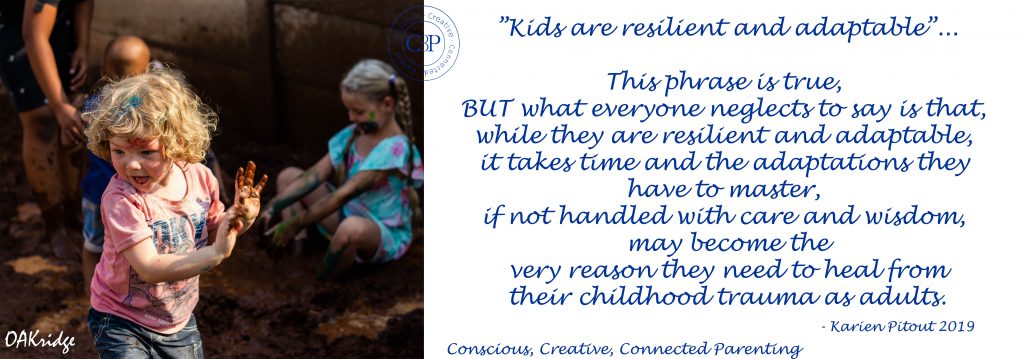This is our third instalment on adjusting to growing a family. The first was; why kids take so long to adjust (click here) for the blog and the second one was tips for parents regarding adjusting. (click here) This blog will focus on things to look out for and what to do to help our kids adjust to a new sibling
We are aware that families do not just grow with adding babies, therefore we have focused on the addition of a new sibling in general, whether a baby or an older sibling, however there are things that will be specifically directed at a baby, but it is very possible to adapt those tips and pointers towards older children.

”Kids are resilient and adaptable” a phrase that is uttered to comfort parents when crisis hits the family or when their kids go through a difficult stage. It has become such a common anecdote that it is almost impossible to raise a child and not have heard this phrase said to you at least once. This phrase is true, BUT what everyone neglects to say is that, while they are resilient and adaptable, it takes time and the adaptations they have to master, if not handled with care and wisdom, may become the very reason they need to heal from their childhood trauma as adults.
The reality is that adding a sibling to the family is a form of stress and trauma for a child of any age. How we handle this, will determine how our children experience trust, connection, challenges and relationships in the future. Will they develop abandonment and trust issues or will they thrive and easily make new bonds with people they meet?
Naturally, there are children that seem to “bounce back” faster than others. There are also highly sensitive kids who will need support for a long period of time and loads more patience with the adjustment. That is the reality and nothing a parent can do will change that.
Why do we call it trauma? Trauma is classified as a life event that has a dramatic impact on your life circumstances, which sends it in a different direction. Adding a new sibling changes everything for a child. They used to be responded to almost immediately, now they have to wait. Their parents’ are more tired, thus their patience seems to be less. They now have to take turns being the point of focus for everything and they have to share everything. Add to that the developmental leaps and changes they are also still going through, it becomes messy, emotionally taxing and can quickly spiral into resentment, anger and fear. This is not a change like going away for a holiday where there will be an end to this new adventure, this is a lifelong adjustment and could possibly be a threat to their survival – as a child they perceive it as a direct threat to their well-being.
A kind mother of three shared this stunning anecdote with me when I was pregnant with our second child. She was kind enough to warn me that the adjustment may be tough on our eldest and the way she shared it has stayed with me. When her second was born, their eldest doted on the baby. Lovingly played with baby. When the baby was about 3 weeks old she casually turned to her mom and asked when the baby’s mother is coming to get her, as she would like to have her mommy back now.
Such innocence in that one summary of how she viewed the situation, but such a big reality check. To her this new sibling had taken resources from her and she would like it back now, the problem is, she won’t have the abundance of resources she had before ever again.
Before you ask, you will not ‘not’ have enough love for all your kids, but when helping our kids adjust and adapt, we need to understand that for them, this is a perceived threat, that somehow they will become less important to you when you start dividing your resources between them and a new sibling. Honestly stated in the beginning it is not even a 50/50 division, but rather a bigger chunk of resources will go to the most vulnerable of the family especially in the first few years. The older sibling feels it and experiences it.
How do we navigate this? There are amazing ways to help your older child navigate this and a few things that we as over tired and thinly spread parents have to keep an eye on, if we want this adjustment to happen with as little stress as possible. It may seem like an impossible task, but it is quite possible if you know what to look out for and how to manage it.
What to look out for:
1 .Watch your expectations of the older child/ren.
When the new sibling joins the family, your older child/ren did not suddenly mature beyond their age. They did not have a software update that suddenly enables them to take on more responsibility. They are still the same age they were the day before the new sibling joined the family, they are just now a day older. Keep that in mind. We have often had to field comments from well-meaning friends and family making comments to our eldest like: You are a big brother now, so now you need to do ‘XYZ’. Actually no, he does not have to do anything except be himself and his age. Why is there an increase in expectations regarding behaviour and responsibility from a child just because they are now the oldest? It is not just unfair to the child, but also creates additional unwanted stress for everyone in an already stressful situation
2. Be aware that when life gets going that they are still as part of life as they were before the new sibling arrived.
Try to keep them involved and in mind and not make them feel as though life is happening to them. They already feel very insecure due to the change, pay attention to how often you make them part of what life is – and no, that does not always mean making them help with a diaper change.
3. They will need more reassurance from you, keep track of how often you acknowledge them in kind and loving ways
Try to catch them in the moments where they are doing ‘good’ and reward or praise them for it.
4. Watch out for over compensating
The rules of the house remains the same, but create space for missteps and regression to be met with kindness, understanding and love. They are asking to be seen and recognised, they are not asking for trouble.
11 Tips for helping your child adjust:
1. Create Time:
Create time where you can spend one on one time with the older sibling/s without the new sibling. If the new sibling is a high needs child, invest in a proper baby carrier (you can contact us and we will send you the number of a carrier consultant) – expect the older child/ren to feel like they have not had enough of your time and be teary or clingy when the dedicated time is over, it is normal.
2. Ask them if the WANT to be part of taking care of the new sibling’s needs:
Ask them if they want to be part of taking care of the new sibling’s needs, like changing the diaper or playing or fetching something for the new sibling – If they say no, accept it and don’t push the point. They will find their own ways to bond with the new sibling. Not all people like to bond in the same way, create opportunities for involvement with no string attached. They are not the parent, so taking care of their sibling is not their responsibility.
3. Give them room to just be!
They do not have to love the new sibling from the get go. They WILL love their sibling and contrary to popular belief, the less you as parent involve yourself in their relationship, the stronger their bond will be.- obviously in the beginning you will facilitate opportunities for them to bond – keeping both children safe – but it is their relationship, let them build it for themselves.
4. Catch them when doing ‘good’, not just with the new sibling, but in general.
Kids wants to feel accepted and loved. When we recognise and praise their good choices it creates a positive connected bond with all who are involved.
5. Invite them in
This idea is often related to the ‘give them things to do for the new sibling because kids like to feel helpful’, but it goes further than that. Allow them to say what they feel about the new sibling. You may not always like what they have to say, but don’t judge what they say. Accept what they say and thank them for sharing. Never contradict what they are saying when they express their feelings. It will only lead to suppressed emotions and more fear. They may even say they hate the new sibling, you know that they do not really, but they are limited in how to express themselves and at that point in time, they are actually just stating that they dislike the change in the home environment.
6. Busy boxes
This is a life saver especially in the early weeks and months of having a baby in the home. Have a busy box for every room. This box may only be opened when you are busy with the new sibling and in that particular room. This adds something special to the moment. Add one toy for the new sibling into that box to facilitate bonding, that toy is for the older sibling to use to engage the new sibling with.
7. Special books
We had a variety of books, one in each room and when we were busy feeding or rocking or having to sit for an extended period of time with the youngest, we had books to read for the oldest.
8. Be present
You can sit with the new sibling in your lap and still watch your older children play. Be a sideline commentator while they play, making positive remarks or narrating what you are seeing playing out in front of you i.e. I see you picked the red block, where would you like to put it. That way the older sibling feels acknowledged and loved and in less of competition for survival
9. Hug it out
They feel the stress you feel, so hug them often and hug them long.
10. Laugh and play loudly
It is difficult for a young child to be quiet and often that is what is expected of them when there is a new sibling in the home. Create space to play loudly and laugh and just be. We live in the age of baby monitors, so if the new sibling is sleeping and is okay with not being in your arms, take the monitor, go to the other side of the home if possible and just be silly and loud with your older child/ren. The beauty of laughter and being loud is it releases stress the same way a good cry will release the stress. So all of you will benefit from it.
11. It takes time, and taking time is okay
Some older children (usually age 5 and up) will seem to adapt quite easily to the new normal, do not be fooled by it. Check in with them often, they may just be afraid or feel guilty for not really being okay with the change. They may think that because you as the caregivers are extra stressed that you cannot deal with their negative feelings as well, so they believe they must just be okay. They may also take 6 to 8 months to finally feel that they are out of the woods and then begin to act out. The acting out may come as a perceived over-reaction for something small, but they have been under stress the whole time and the ‘small thing’ is just the straw that finally breaks the camel’s back. It can come through as obstinate disobedience, being more challenging than usual. Be prepared that acting out because of the new normal may only manifest long after it seems that things are finally settling down. When this happen, before scolding or accusing them of deliberate disobedience, talk with them and get to the bottom of it.
Follow us on Facebook and join the conversation. We also offer parenting courses and workshops, keep a lookout for the dates and times.
6,519 total views


